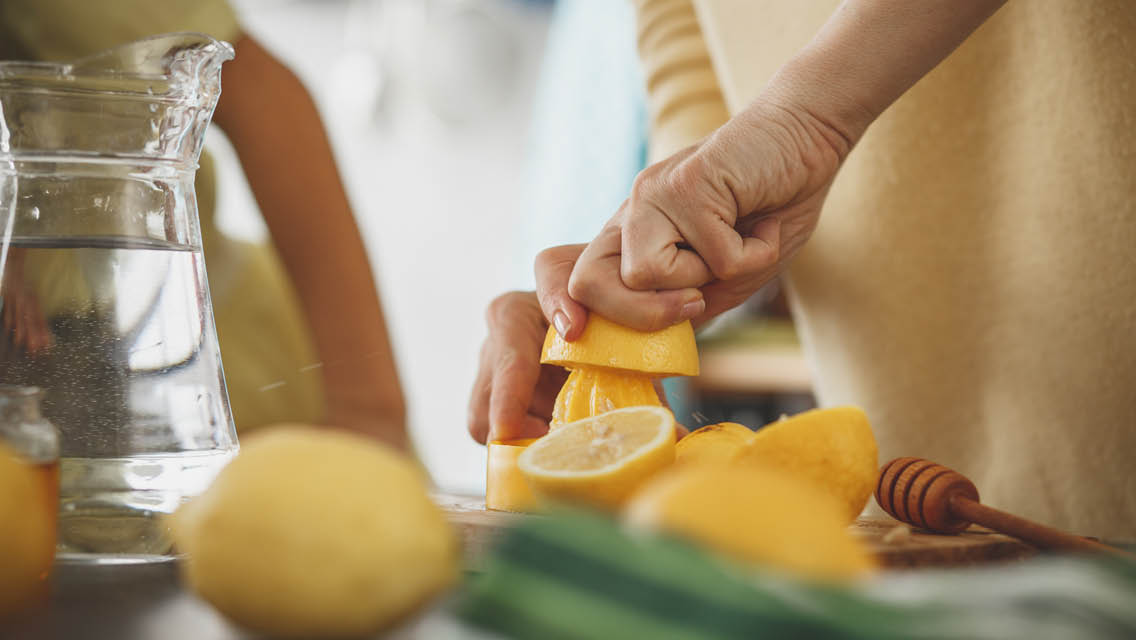Cancer treatment often alters how foods and drinks taste: As many as 84 percent of patients say they experience issues with palate changes. Researchers don’t fully understand why this happens, but a lack of interest in eating can lead to fatigue, involuntary weight loss, and muscle wasting.
“If food doesn’t taste good, it doesn’t matter how healthy it is, because no one is going to want to eat it,” explains Rebecca Katz, MS, author of The Cancer-Fighting Kitchen: Nourishing, Big-Flavor Recipes for Cancer Treatment and Recovery. “You’ve got to entice the taste buds that aren’t numbed out from treatment.”
Katz encourages people undergoing treatment to keep a “flavor kit” of salt, citrus, olive oil, and maple syrup at hand for tweaking dishes that don’t hit the right note. “Think of it as a game of darts, with the bull’s-eye being that absolute moment of yum.” She recommends the following tactics:
- Try a pinch of salt. Katz compares salt to scrubbing bubbles “because it goes inside the taste bud and sparks salivation.”
- Squeeze a few drops of lemon on top if the food still tastes bland, or if it was too salty from the start. Go slow so as not to overwhelm the dish, says Katz. “A little acid animates the flavor, makes it brighter.” Lemon can also help neutralize chemotherapy’s metallic aftertaste. And if it’s your water that tastes like metal, she recommends putting a bunch of lemon slices into a pitcher of water and keeping it in the fridge. “Mint and berries also work,” she says.
- Drizzle on a little maple syrup if a dish is too acidic. “I call it ‘my drape of mape,’” she says. “Many cancer patients are avoiding sugar, but just a quarter of a teaspoon of maple syrup can balance the flavor of an entire pot of soup, so it’s worth it.” Like lemon, maple syrup can cut through the metallic taste caused by chemotherapy.
- Add a fat if the dish is still blah. Extra-virgin olive oil works for many foods, but you can also try coconut milk, cashew cream, or nut butter. “Fat spreads flavors across the taste buds,” Katz says. If you have trouble swallowing or have mouth sores, she advises adding a bit of fat and staying away from ginger, curry, red-pepper flakes, and other strong spices.
This was excerpted from “Eating Well During Cancer Care” which was published in the November 2021 issue of Experience Life magazine.





This Post Has 0 Comments